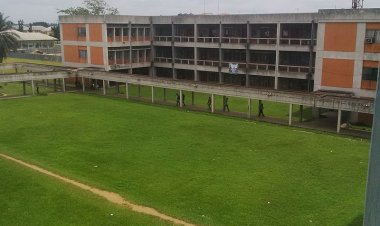Deputy Speaker in Ebonyi Advocates Salary Increase to Alleviate Economic Hardship for Workers
Chinedu Onah, Deputy Speaker of Ebonyi State House of Assembly, urges government action to boost civil servants' salaries, citing the current economic challenges in Nigeria.

Amidst the prevailing economic challenges in Nigeria, Chinedu Onah, the Deputy Speaker of Ebonyi State House of Assembly, has called on the government to prioritize the welfare of civil servants by enhancing their salaries. Speaking to reporters after an event in Ohaukwu Local Government Area, Onah emphasized the need for equitable treatment between politicians and civil servants.
READ: Ebonyi State Receives UNESCO Applause for School Health Education Success

Onah highlighted the discrepancy between the current salary structure and the rising cost of living, including soaring food prices and escalating school fees. He stressed that salaries of N30,000 or N40,000 were insufficient to meet basic needs, let alone handle additional expenses such as education.
SEE: Ebonyi to Subsidize WAEC/NECO Fees for Public School Students

Advocating for a substantial increase in civil servants' salaries, Onah underscored the importance of alleviating their financial burdens amidst the broader economic hardship in the country. He urged both federal and state governments to recognize the reality of the situation and take proactive measures to address the plight of workers.
FOLLOW: EBSU Final-Year Law Student Dies in Tragic Accident on Route to Campus
With Onah's plea echoing sentiments shared by many across the nation, there's mounting pressure on authorities to prioritize economic reforms that directly impact the lives of ordinary citizens. As discussions continue on addressing economic disparities and ensuring social welfare, the call for salary increments for civil servants remains a focal point in the ongoing discourse on economic stability and social justice.

 Mary Nwaeze
Mary Nwaeze 



